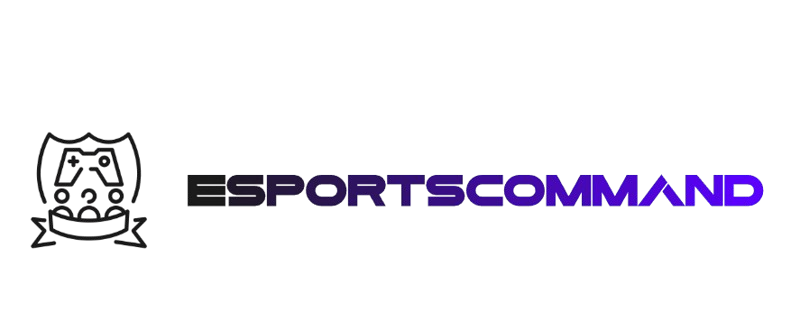In the ever-evolving world of gaming, finding the best game development software can feel like searching for a needle in a haystack—if the haystack were also on fire. Whether you’re a budding developer or a seasoned pro, the tools you choose can make or break your game. With countless options out there, it’s easy to get lost in a maze of features, pricing, and user reviews that read like a novel.
Best Game Development Software
Game development software serves as the backbone for creating interactive experiences. Various types of software cater to different aspects of game creation, including engines, tools for modeling and animations, and coding environments. Developers often rely on game engines like Unity or Unreal Engine, which provide comprehensive environments for building games across multiple platforms.
Specific tools enhance game art and design. Programs such as Blender and Adobe Photoshop help create stunning visuals and engaging textures. Collaboration between designers and developers becomes seamless with integrated development environments (IDEs) like Visual Studio and JetBrains Rider, which simplify coding processes.
Choosing the best game development software hinges on several factors. A project’s scope, team expertise, and targeted platforms dictate software suitability. For instance, mobile game development favors lightweight engines, while AAA game projects benefit from robust, feature-rich environments.
Support and community resources often influence decisions as well. Well-supported software with active communities offers tutorials, forums, and asset stores, providing invaluable resources for problem resolution. These factors make software not just tools but essential components for game success.
Accessibility is another key consideration. Many current platforms offer free or trial versions, allowing developers to experiment before committing. Regular software updates ensure developers stay ahead of industry trends, which is crucial for maintaining competitiveness.
Analyzing features and benefits lets developers identify the best solutions. Scalable assets, cross-platform capabilities, and user-friendly interfaces represent essential attributes in today’s market. Balancing these aspects effectively leads to successful game development outcomes.
Key Features to Consider

Choosing the best game development software hinges on several key features. Prioritizing these aspects ensures streamlined workflows and overall project success.
Ease of Use
An intuitive interface simplifies the learning curve for new users. Streamlined tools enhance productivity, allowing developers to focus on creativity rather than troubleshooting. Comprehensive documentation and tutorials improve the onboarding process. User-friendly drag-and-drop mechanics can accelerate development timelines. Accessibility of features is vital for teams to collaborate efficiently.
Collaboration Tools
Integrated communication tools facilitate seamless interactions among team members. Real-time editing enables multiple developers to work on projects simultaneously. Version control management prevents conflicts and ensures everyone accesses the latest updates. Cloud-based storage options provide easy access to resources from different locations. Collaboration features often enhance project efficiency and reduce development time.
Supported Platforms
Robust game development software supports multiple platforms, including PC, consoles, and mobile devices. Cross-platform capabilities expand market reach and attract a larger audience. Developers increasingly seek engines that allow simultaneous builds for various operating systems. Comprehensive platform support ensures consistent performance across devices. Compatibility with emerging technologies, such as virtual reality, positions software as future-proof.
Top Game Development Software
Best game development software: Numerous game development software options cater to diverse needs, enabling developers to create engaging interactive experiences.
Unity
Unity stands out for its versatility and user-friendly interface. Developers access a vast library of assets from the Unity Asset Store, which enhances productivity. Supporting multiple platforms, Unity allows teams to publish games on consoles, mobile devices, and PCs seamlessly. The robust community offers valuable resources, including tutorials and forums, fostering collaboration among developers. Regular updates keep the software aligned with industry trends, maintaining its relevance.
Unreal Engine
Unreal Engine excels in delivering high-quality graphics and complex gameplay mechanics. Its Blueprints visual scripting system permits programmers to design without extensive coding knowledge, which streamlines the development process. Developers benefit from its integrated physics engine, which enhances realism in simulations and environments. Supporting cutting-edge technologies like virtual reality, Unreal Engine proves to be future-proof. Additionally, the strong community support provides ample learning opportunities.
Godot
Godot is an open-source game engine that attracts developers with its flexibility and lightweight design. This tool facilitates rapid prototyping and is particularly appealing for indie developers working on smaller projects. The user-friendly scene system allows for intuitive development and a smooth workflow. Supporting multiple platforms, Godot promotes an expansive audience reach for games. Regular community contributions ensure a steady stream of updates and improvements.
GameMaker Studio
GameMaker Studio offers a straightforward, drag-and-drop interface ideal for beginners. Its GameMaker Language (GML) allows for more advanced coding options when needed. This software streamlines workflow, enabling developers to create 2D games efficiently. Supporting a variety of platforms, developers enjoy the ability to reach multiple audiences. GameMaker Studio’s active community provides tutorials and resources for learning, enhancing the development experience.
Construct
Construct emphasizes visual programming, allowing developers to create games without prior coding experience. It’s known for its user-friendly interface, making it perfect for quick iterations and prototyping. The software supports HTML5 output, which targets web and mobile platforms directly. Developers appreciate the integrated features for multiplayer functionality, enhancing player experiences. Construct’s accessible community fosters collaboration and knowledge sharing among developers.
Comparisons and Alternatives
When examining game development software, several alternatives emerge. Unity and Unreal Engine frequently dominate discussions due to their extensive features. Unity offers a versatile environment suitable for 2D and 3D games. Many developers prefer its vast asset library and strong community support. In contrast, Unreal Engine excels in delivering stunning graphics and complex gameplay mechanics, appealing to larger projects.
Comparing Godot reveals its unique open-source nature. This engine allows indie developers flexibility while maintaining a lightweight design. From visual scripting to custom scripts, Godot caters to various skill levels, making it approachable for many. GameMaker Studio stands out for its user-friendly drag-and-drop interface, ideal for beginners aiming to create simpler games.
Construct distinguishes itself by focusing on visual programming. This tool enables rapid iterations, making it suitable for developers targeting web and mobile platforms. When evaluating these options, consider factors like project scope and team expertise. Those pursuing mobile games might prioritize lightweight engines, while AAA project teams often opt for robust environments.
Community support can significantly influence the decision-making process. Resources such as tutorials can shorten the learning curve, particularly for newer developers. Many platforms serve trial or free versions, allowing exploration of features without financial commitment. Regular software updates also ensure alignment with emerging technologies, enhancing overall longevity.
Assessing compatibility with various platforms remains crucial. Each software option supports distinct capabilities, determining market reach and user experience. Robust software should ensure consistent performance across devices, especially as gaming trends evolve toward cross-platform play. Prioritizing these comparisons enables developers to identify the ideal tools for their unique game development needs.
Selecting the right software is crucial
Selecting the right game development software is crucial for success in today’s competitive landscape. With a variety of options available each catering to different needs developers can find tools that enhance creativity and streamline the development process.
Whether opting for powerful engines like Unity and Unreal Engine or user-friendly platforms like GameMaker Studio and Construct the choice ultimately depends on project requirements and team expertise. Prioritizing features such as ease of use collaboration capabilities and community support can significantly impact a project’s outcome.
By carefully evaluating these factors developers can confidently choose the best software that aligns with their goals and paves the way for creating engaging interactive experiences.

